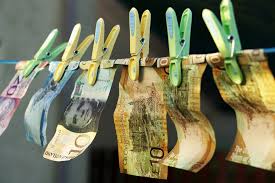-Dirty Money: a feminist challenge globally
By Edwin M. Fayia, III
A little more than one year ago, a consortium of journalists from around the world revealed the Panama Papers, a ground-breaking investigation into the financial tricks that some politicians, businesses, and criminals use to hide vast amounts of money in tax shelters and offshore accounts.
Despite the breadth of the report, however, the Panama Papers still just scratched the surface of the global offshore economy.
These clandestine transfers of capital—“illicit financial flows,” as experts call them—strip a trillion dollars a year from developing countries.
The offshore economy—where dirty money mixes with tax avoidance and evasion, bribery, and the criminal trafficking of drugs, arms, and human beings—has negative effects on rich and poor countries alike. Too often, though, its outsized impact on girls and women goes unnoticed.
That’s why an organization, the Development Alternatives with Women for a New Era (DAWN), is focusing on the link between the offshore economy and women’s rights, and that’s why we’re calling for a global campaign to address tax evasion and money laundering.
Last December, DAWN released a report that shows how illicit financial flows from Latin America and the Caribbean undermine gender justice in a region that already suffers some of the world’s worst levels of economic inequality.
Principally, considering the weak laws of Liberia and their corresponding inner workings of the judiciary, the nation could be a potential conduit for money laundering through what financial and security experts as the porous borders with her neighbors in the Mano River Union basin in West Africa.
The amount of capital that illicitly flows out of this part of the world is huge: at least $150 billion per year, or 14 times more than the official development aid that comes in to the region.
Latin America also has a very high level of tax evasion, and much of that untaxed wealth flows into overseas accounts.
The resulting budget shortfalls experienced by the region’s governments hit women and girls the hardest, because they are more likely to depend on social services that are vulnerable to budget cuts.
Interestingly, in Liberia, during the tenure of the then Finance Minister Amara Konneh now an International Monetary Fund executive, the nation did experience two successive budget shortfalls that sent shockwaves across the economic and political spectra in the country.
Such situation in Liberia saw the introduction of new Liberian banknotes in different denominations, and whatever reasons the total absence of change coins as it is done in many countries the world over.
Nor is the harm the illicit economy causes to women and girls always so indirect.
A significant funding source of illegal economies comes from human trafficking, whether for sexual exploitation, domestic service, sweatshop labor, or organ transplants.
This market, too, is enormous: at any given point in time, according to the International Labor Office, around 2.45 million people around the world are trafficking victims.
For multiple reasons, from the feminization of poverty to unhealthy cultural norms, traffickers disproportionately target women and girls. And human trafficking wouldn’t be as profitable—to the tune of $32 billion dollars a year—if traffickers weren’t able to use the offshore economy to launder the money.
As a feminist network of the Global South, DAWN is working to raise awareness of the link between these financial systems and women’s rights.
But identifying the problem is only the first step, and tackling the global offshore economy will ultimately require a global response of its own.
As we write in the report, “the key here is international cooperation in tax matters”—because the mechanisms that facilitate tax avoidance and evasion are the same ones used for money laundering, corruption, and criminal activity.
“We need international standards to sanction global facilitators of tax abuse and human trafficking—and enforcement that focus on the enablers: banks, secret jurisdictions, shell companies, legal advisors, and corrupt government authorities.”
Creating the political will to implement these solutions is hard, because so many governments and businesses—especially those in the Global North, which reaps many of the profits of the offshore economy—benefit under the current system.
At the UN’s 2015 International Conference on Financing for Development, for example, several wealthy countries formed a bloc to stop the creation of a new UN tax body that would have given developing countries equal participation in the design on global tax rules.
To overcome this resistance, women’s rights movements need to make it clear that tax evasion and money laundering are gender justice issues—and hold governments accountable for failing to deal with them.
“We can’t achieve full equality for women and girls without fixing the financial systems that stand in the way of our rights.”

